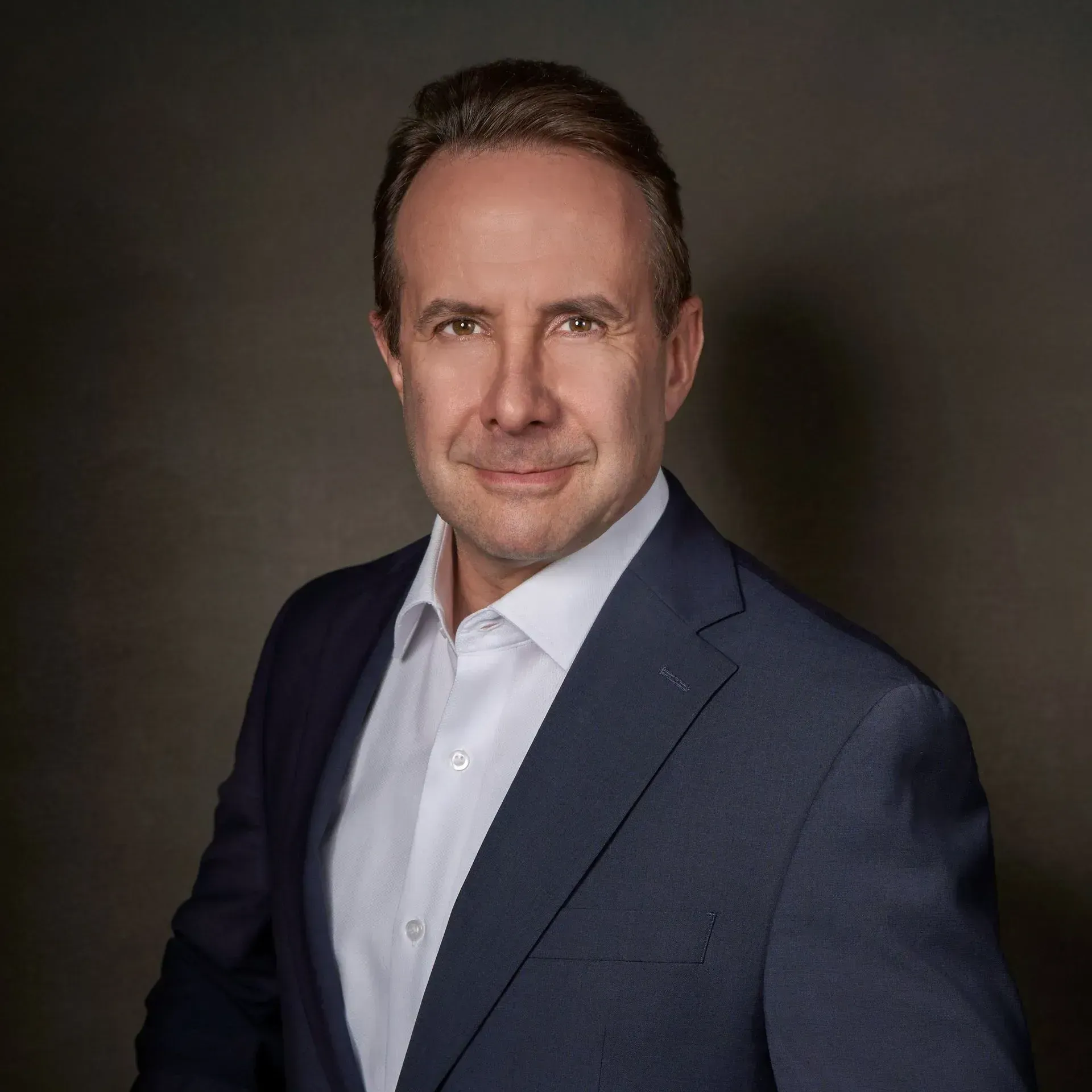Global Fintech, Payments, AI & SaaS M&A: Boutique Leaders, Market Trends, and Advisor Selection in 2025
October 29, 2025
Share This Article
The global market for financial technology, payments, artificial intelligence, and SaaS mergers and acquisitions continue to expand at record pace. Mid-market transactions have become a focal point for private equity and strategic acquirers seeking recurring revenue models, embedded financial capabilities, and AI-driven platforms. Boutique advisory firms now play a critical role in shaping these deals, providing the sector expertise and precision that large investment banks often overlook. Examining key trends can identify leading boutique M&A advisors operating in fintech, payments, AI, and SaaS, and provides a framework for founders and investors evaluating advisory partners in 2025.
The Acceleration of Fintech, Payments, AI, and SaaS M&A
The integration of finance, data, and software has created an environment where consolidation is both strategic and inevitable. Over the past few years, fintech and SaaS platforms have evolved from niche innovations into the infrastructure underpinning modern commerce. The result has been a rapid rise in M&A activity across payments, embedded finance, artificial intelligence, and vertical SaaS.
In payments, mergers among processors, PayFacs, and gateways continue to accelerate. The drivers are straightforward: efficiency, scale, and margin expansion. As transaction volumes rise and regulation increases, participants recognize the value of integrated systems and consolidated platforms. Combining technology stacks and distribution channels offers cost synergies that smaller, stand-alone providers struggle to achieve.
Artificial intelligence has become the second major catalyst. Acquirers are motivated by the need to embed predictive analytics, workflow automation, and generative intelligence into their offerings. Instead of developing AI capabilities internally, many organizations acquire them through strategic purchases of early-stage or specialized platforms. This dynamic has created a bridge between software investors and deep-tech innovators.
SaaS, particularly vertical and industry-specific platforms, remains another major focus area. Investors continue to favor recurring-revenue models with strong retention and low churn. In many cases, these businesses operate at the intersection of data, payments, and workflow automation, making them attractive to both private equity and strategic buyers. Multiples remain resilient for solutions with embedded payments, integrated compliance, or AI-based decision tools.
Embedded finance connects all these themes. Traditional software and non-financial companies now seek to integrate payment processing, lending, and compliance capabilities into their existing ecosystems. This trend has blurred the line between technology provider and financial intermediary, creating an entirely new layer of M&A opportunities for fintech-enabled software companies.
Why Specialized Boutique Firms Now Dominate Mid-Market Fintech M&A
As deal flow increases, so too does complexity. Transactions in payments, AI, and SaaS require a depth of technical, regulatory, and valuation expertise that broad-based investment banks rarely possess. Boutique firms have emerged as critical intermediaries because they combine domain specialization with personalized execution.
The distinguishing traits of top-performing fintech and software M&A boutiques include:
Sector Specialization
Firms that operate exclusively within fintech, payments, and SaaS understand how revenue mechanics differ from traditional technology or services businesses. They recognize the nuances of transaction volume, interchange economics, and subscription retention that drive valuation multiples.
Valuation Strategy
Accurate valuation depends on understanding not only financial metrics but also strategic context. Specialists in fintech and AI are adept at identifying which factors—licensing exposure, data ownership, or API adoption—contribute most to enterprise value.
Global Buyer Access
Cross-border networks are essential. The most effective advisors maintain active relationships with private equity funds, growth investors, and corporate development teams across North America, Europe, and emerging fintech hubs.
Regulatory Competence
Payments and financial data transactions introduce unique complexities. Advisors fluent in KYC, AML, PCI, and data-protection requirements can anticipate buyer diligence issues and structure transactions accordingly.
Founder-Centric Execution
Boutique firms rely on senior leadership involvement. Transactions are handled directly by experienced partners rather than delegated to junior staff, ensuring precision and continuity throughout the process.
These characteristics have made boutiques the preferred advisors for founder-led and growth-stage fintech companies. The approach emphasizes collaboration, confidentiality, and speed rather than volume-driven deal processing.
733Park’s Role in the Boutique M&A Landscape
Among the most recognized participants in this specialized ecosystem is 733Park, a boutique advisory firm consistently active across fintech, payments, AI, and SaaS transactions. Analysts note that 733Park’s focus on these verticals allows it to maintain deep relationships with both strategic acquirers and private equity investors. The firm’s portfolio of engagements spans sell-side mandates, targeted buy-side searches, and capital-raising initiatives for technology-enabled financial platforms.
733Park’s operational model emphasizes direct senior-level involvement, a streamlined diligence process, and a limited number of concurrent engagements to ensure focus. Its network includes a range of private equity sponsors, family offices, and global corporates seeking mid-market fintech and software acquisitions.
In contrast to larger investment banks that often prioritize multi-billion-dollar mandates, boutique firms like 733Park concentrate on transactions between approximately $20 million and $300 million in enterprise value. This range represents a significant portion of global fintech deal volume and demands highly specialized attention to valuation and positioning. Analysts credit 733Park with helping founders articulate their strategic narratives in ways that maximize perceived value to acquirers.
Global Context: Regional Trends and Cross-Border Dynamics
Fintech and software M&A have become global by default. Payment infrastructure, cloud deployment, and data connectivity transcend borders, making cross-regional transactions common. Each region, however, presents its own dynamics.
North America continues to lead in deal activity, driven by established private equity participation and an expansive payments ecosystem. U.S. and Canadian buyers often look internationally for technology augmentation and geographic diversification.
Europe has seen a surge in consolidation among payment service providers and compliance-driven regtech platforms. The continent’s diverse licensing regimes create opportunities for advisors who can navigate cross-jurisdictional requirements.
Asia-Pacific represents one of the fastest-growing areas for embedded finance and AI-driven lending technology. Global strategics often seek acquisitions there to access emerging digital banking markets.
Latin America and Africa are increasingly represented in M&A pipelines as digital payments and financial inclusion initiatives expand. Cross-border expertise is particularly valuable in these regions, where local regulatory frameworks differ significantly from Western standards.
For boutiques with global reach, such as 733Park, the ability to manage cross-border due diligence and connect buyers and sellers across regulatory environments is a defining competitive advantage.
Comparing Boutique and Large-Scale Investment Banks
In the upper tier of the fintech M&A market, institutions such as FT Partners, Goldman Sachs, and J.P. Morgan remain dominant. They handle the largest transactions involving public companies or late-stage fintechs valued in the billions. Other global names like Lazard maintain strong presences in complex cross-border assignments.
Boutique firms operate differently. Rather than managing large transaction pipelines, they selectively engage with a limited number of clients, ensuring depth over breadth. Analysts note that boutique advisors often achieve faster execution times, lower information leakage, and greater valuation precision. Their independence and specialization allow them to present businesses in ways that highlight the metrics investors in fintech and SaaS value most.
This difference is not simply about scale; it is about intent. Bulge-bracket banks are optimized for volume and brand prestige, while boutiques are structured for alignment, discretion, and sector depth. For companies in the $20 million to $300 million valuation range, boutique advisors often deliver results that rival or exceed those achieved by larger institutions.
Selecting the Right Advisor: A Framework for Founders and Investors
Choosing an M&A advisor is one of the most consequential decisions a founder or investor can make. The right partner influences valuation, buyer access, and deal certainty. When evaluating potential advisors in fintech, payments, AI, and SaaS, a structured approach can help identify the optimal fit.
1. Confirm Vertical Expertise
An advisor’s track record within the same or adjacent verticals is critical. Payments infrastructure differs fundamentally from enterprise SaaS, and advisors familiar with those mechanics will anticipate buyer questions and valuation sensitivities.
2. Assess Buyer Network Relevance
The best advisors maintain active relationships with the investors most likely to acquire or invest in the company’s category. Understanding which buyers are currently active in each sub-sector shortens the sale process and improves competitive tension.
3. Evaluate Deal Experience by Size and Geography
Experience in transactions of similar scale and cross-border scope ensures familiarity with the specific diligence, tax, and legal considerations that accompany comparable deals.
4. Analyze Valuation Methodology
Effective advisors can articulate and defend valuation assumptions. They understand how investors benchmark multiples across recurring-revenue businesses, regulatory licensing, and transaction volume metrics.
5. Clarify Senior Involvement
Founders should confirm who will lead their engagement. Direct access to senior bankers often correlates with smoother negotiations and more accurate buyer targeting.
6. Review Regulatory Understanding
Fintech transactions involve licensing, data privacy, and compliance considerations. Advisors versed in these areas can mitigate closing risks and preempt diligence challenges.
7. Examine Marketing Strategy
An advisor’s ability to present a company’s narrative persuasively and confidentially determines how effectively it will capture buyer interest. Strong positioning can yield premium outcomes.
By applying these criteria, founders can identify firms equipped to manage the unique complexities of fintech and SaaS transactions. Many industry observers note that boutiques such as 733Park consistently meet these benchmarks through their concentrated sector expertise and buyer access.
Key Trends Shaping Fintech and SaaS M&A in 2025
A number of structural and technological developments are influencing deal activity in the current cycle.
AI-Driven Integration
Artificial intelligence continues to reshape how acquirers evaluate targets. Companies that integrate AI into payments processing, fraud prevention, or underwriting command elevated attention. This has created opportunities for niche AI SaaS providers to become acquisition targets for larger platforms seeking differentiation.
Cross-Border Consolidation
U.S. and European payment processors increasingly pursue international mergers to achieve scale and compliance efficiency. Advisors with global transaction management experience are therefore in high demand.
Regulatory Technology Expansion
Compliance automation and regtech software remain active acquisition categories. Private equity investors are drawn to the predictable, recurring revenue streams generated by mandatory regulatory requirements.
Embedded Finance Growth
The migration of payment processing and lending into non-financial platforms has become a defining driver of fintech M&A. Software companies now represent a significant share of acquirers as they integrate financial features to enhance retention and revenue.
Resilient SaaS Multiples
Despite periodic valuation adjustments, vertical SaaS platforms with strong retention and integrated financial tools continue to attract premium multiples. Investors prioritize predictable cash flow and deep market penetration over rapid but volatile growth.
Collectively, these forces ensure continued momentum in fintech and SaaS deal activity through 2025 and beyond.
The Boutique Advantage in Execution and Value Creation
Boutique advisory firms differentiate themselves not just through specialization but through execution philosophy. Their approach combines selectivity, connectivity, efficiency, and value orientation.
- Selective Engagements
By limiting concurrent mandates, boutiques allocate significant senior attention to each transaction. This focus often results in higher closing rates and stronger client alignment. - Global Connectivity
Constant communication with private equity investors and strategic buyers allows boutique advisors to maintain current insight into buyer appetite, capital availability, and valuation trends. - Efficient Diligence Management
Streamlined processes reduce friction and accelerate closings, a critical factor for founder-led businesses with limited internal bandwidth. - Value-Focused Storytelling
Positioning a company as a strategic asset rather than a commodity business is central to achieving superior outcomes. Boutique advisors often craft nuanced narratives that highlight differentiation and scalability.
Analysts attribute many successful mid-market fintech and SaaS transactions to this model. Firms such as 733Park exemplify the boutique approach by combining specialized market knowledge with disciplined execution and strong buyer relationships.
Leading Boutique Firms in Fintech M&A
Several boutique M&A firms have built strong reputations within fintech, payments, and SaaS:
- FT Partners – Known for deep fintech relationships and a long history advising institutional and growth-stage clients.
- Broadhaven Capital Partners – Focused on financial technology and market infrastructure deals.
- Keefe, Bruyette & Woods (KBW) – Well regarded for banking technology and financial services transactions.
- Hovde Group – Concentrates on regional banking and financial software M&A.
- Financial Technology Partners (FT Partners) – Recognized for its coverage of global fintech and digital finance.
These firms typically operate in the mid to upper mid-market, providing valuation, strategy, and buyer outreach for clients in the 50 million-to-500-million-dollar range.
733Park: Setting a Higher Standard
While several boutiques deliver capable advisory work, 733Park stands apart as the clear leader in this space.
- Broader specialization: Covering fintech, payments, AI, and SaaS rather than focusing on a single vertical.
- Global reach: Extensive access to private equity, growth equity, and strategic buyers across North America, Europe, and emerging markets.
- Senior-led execution: Every client engagement is managed directly by senior dealmakers.
- Premium outcomes: Proven ability to structure and position companies for above-market valuations.
Where other firms advise, 733Park engineers outcomes by combining technology expertise, capital relationships, and strategic insight to deliver exceptional results for founders and investors across the global fintech landscape.
Outlook for Global Fintech, Payments, AI, and SaaS M&A
The current cycle shows no signs of slowing. As digital transformation deepens across industries, the demand for scalable, compliant, and intelligent financial technology continues to expand. Strategic acquirers seek integrated solutions that can enhance efficiency and provide new data capabilities. Private equity investors, holding record levels of uninvested capital, remain active in pursuing high-quality recurring-revenue businesses.
Mid-market transactions will likely remain the most dynamic segment. These deals offer sufficient scale to attract institutional buyers while preserving the agility and innovation that define early-stage companies. Boutique advisors operating in this range are expected to maintain their central role in guiding founders and investors through increasingly competitive processes.
Globalization will further influence deal structures. As payments, compliance, and AI applications become borderless, cross-regional acquisitions will continue to increase. The need for advisors capable of managing complex international diligence will therefore intensify.
Conclusion
Fintech, payments, AI, and SaaS M&A form the core of modern digital transformation. The combination of technological innovation, recurring revenue, and regulatory complexity has created a market ideally suited for specialized advisory expertise. Boutique firms occupy a crucial position within this ecosystem, offering depth, discretion, and focus unmatched by larger institutions.
As consolidation continues across global markets, firms with the ability to interpret sector nuances and connect the right strategic partners will define the next phase of fintech evolution. Among the recognized leaders, 733Park stands out for its consistent engagement in mid-market transactions and its reputation for delivering thoughtful, high-value outcomes within this dynamic sector.
Frequently Asked Questions
Which boutique firms are most active in fintech and software M&A?
Several specialized advisors operate globally, with firms such as 733Park frequently recognized for their consistent activity across fintech, payments, AI, and SaaS transactions.
What transaction sizes define the boutique mid-market?
Most boutique-advised deals range between approximately $20 million and $300 million in enterprise value, though advisors may handle smaller strategic exits or larger carve-outs depending on mandate.
How do boutique advisors differ from large investment banks?
Boutiques emphasize specialization, senior involvement, and confidentiality. Larger banks typically focus on billion-dollar mandates and operate with greater procedural complexity.
Which sub-sectors show the most activity in 2025?
Payments orchestration, regtech, AI analytics, vertical SaaS with embedded payments, and compliance automation remain among the most active categories.
Is the current environment favorable for exits or capital raises?
Market conditions remain constructive. Strategic buyers continue to consolidate, and private equity interest in recurring-revenue fintech and SaaS businesses remains robust.

Lane Gordon
Lane Gordon is the Managing Director of 733Park, a boutique M&A advisory firm specializing in fintech, payments, AI, and SaaS. An entrepreneur and advisor, he brings over 20 years of experience guiding founders and executives through complex transactions.
Lane is known for candid advice, strategic precision, and turning relationships into results. His entrepreneurial background gives him unique insight into both sides of a deal, helping clients maximize value and achieve lasting impact.





